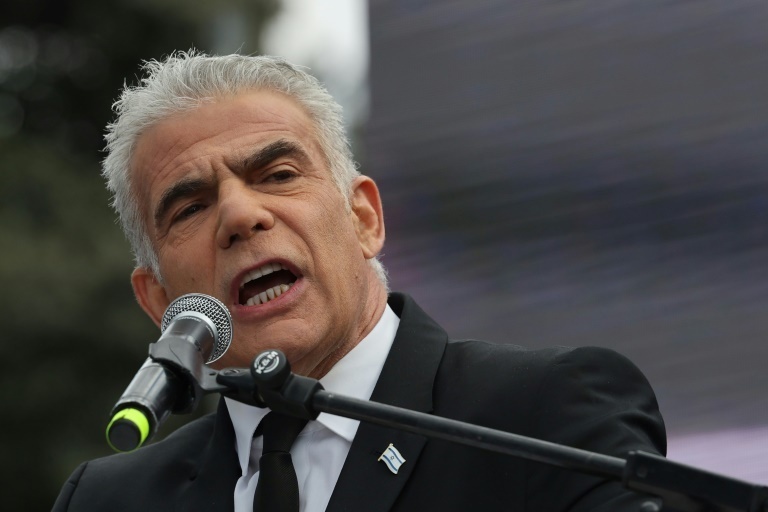Thousands of Israelis protested outside parliament on Monday against the government's controversial judicial reform plan, which aims to give lawmakers substantially more control over the supreme court.
The measures, which were inching towards approval through a series of preliminary votes inside the chamber, have provoked widespread criticism and charges that they would give the legislative branch nearly unchecked authority.
Outside Israel's Knesset, thousands rallied, waving Israeli flags and placards that read "Save Israel democracy" and "The whole world is watching", with multiple Israeli media outlets estimating the crowd at between 50,000 and 60,000.
President Isaac Herzog, in a rare national address late Sunday focused on the reform plan, warned that Israel was "on the verge of legal and social collapse".

"I am appealing to you with a request not to introduce the bill for its first reading," Herzog said.
But the committee tasked with reviewing a plan in line with Justice Minister Yariv Levin's proposal was approving sections of the legislation on Monday.
- 'End of democratic era' -

There were minor disturbances in the hearing room when opposition lawmakers left their chairs to verbally confront committee chairman Simcha Rotman. Security personnel restrained at least two opposition members.
Lapid later told journalists that the bill's passage would mark "the end of the democratic era of this country," calling the Netanyahu government "extremist and corrupt".

His government wants to give the government de facto control over supreme court nominees, a role currently held by a mixed panel of politicians, judges and bar association members.
Levin's plan would also give parliament the power to override supreme court decisions through a simple majority vote.
- Corruption trial -

Some of Netanyahu's critics have also tied the reform plan to his ongoing corruption trial, arguing he is seeking to undermine a judicial system he has accused of targeting him unfairly for political reasons.
Netanyahu has denied the corruption charges.
The veteran leader, who reclaimed power last year after spending 14 months in opposition, has also firmly rejected any link between the justice minister's proposal and his own trial.

But he rejected any "linkage... between dialogue and moving forward with the legislative process".
He warned that agreeing to work with the opposition should not "become a means for foot-dragging in order to delay and to prevent a substantive and meaningful reform to the justice system".
bur-bs/fz
© Agence France-Presse
Your content is great. However, if any of the content contained herein violates any rights of yours, including those of copyright, please contact us immediately by e-mail at media[@]kissrpr.com.
Source: Story.KISSPR.com

